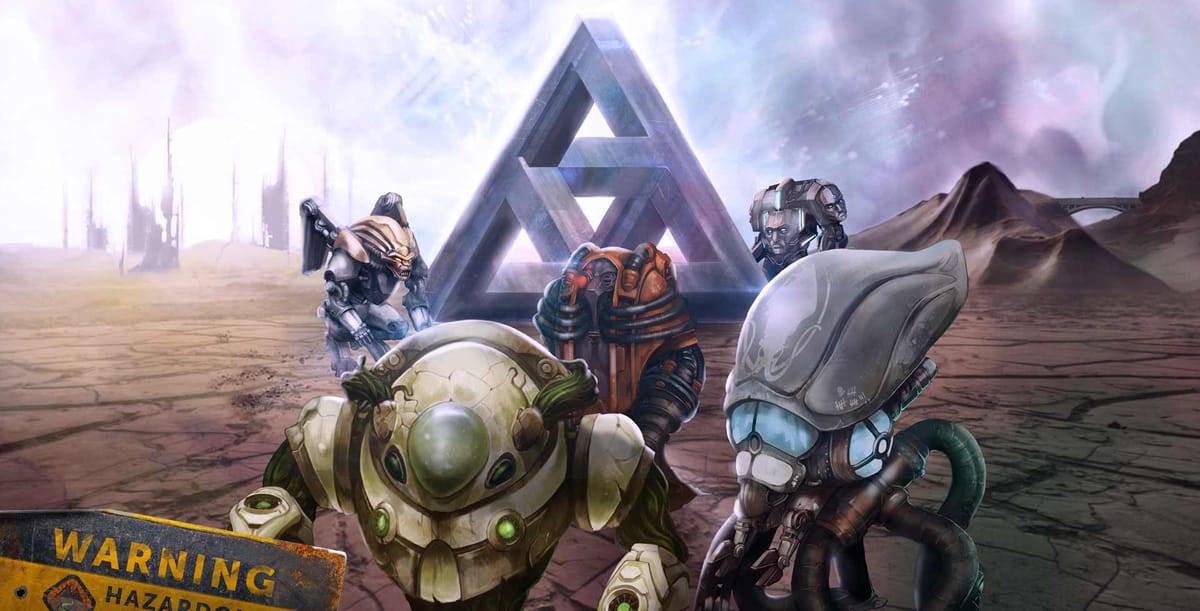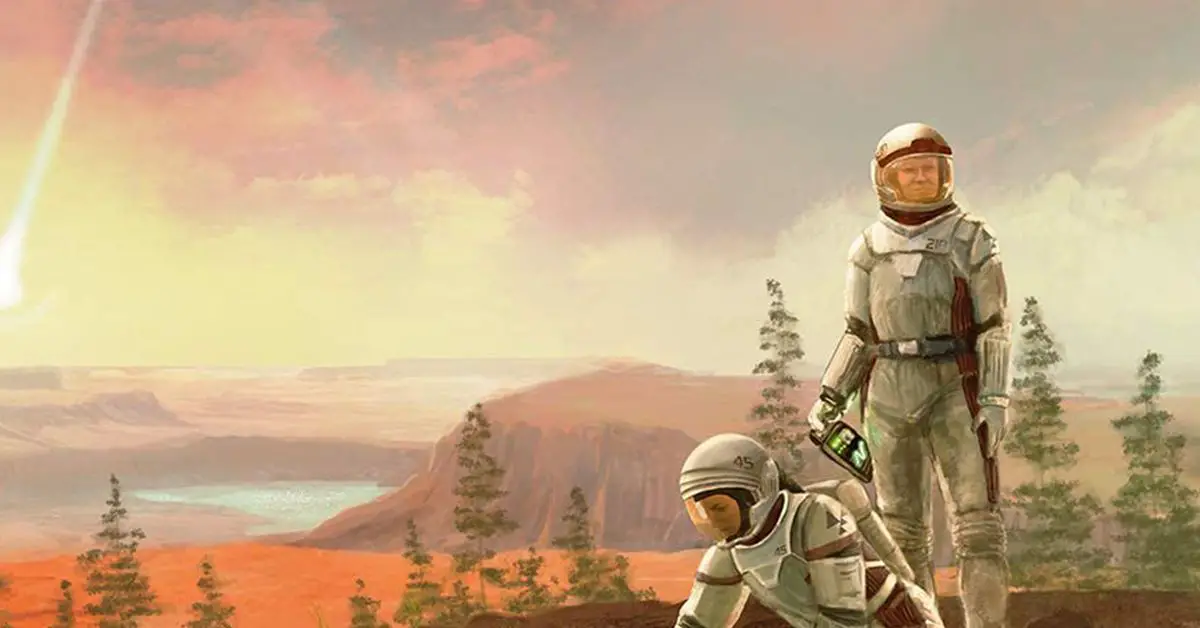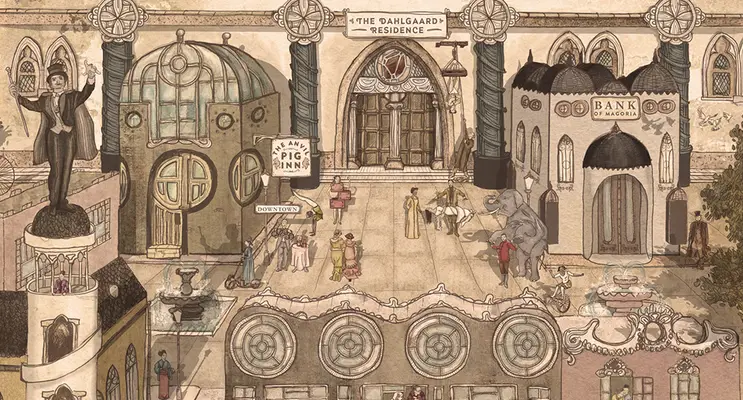
If there’s anything my examination of low budget filmmaking has taught me, it’s that nothing informs your output like the limitations restricting that work. Christopher Kaminski and Christopher Knox, have set themselves a task that, if not impossible, certainly defies conventional artistic wisdom. The flagship project of their production studio, Cobalt Knight, will be a television series adaptation of Terraforming Mars, the board game about corporations vying for control over the process of turning the red planet from desert to paradise. We also discussed upcoming adaptations of Terra Mystica, Anachrony, and Trickerion. I was as hesitant as anyone when I first heard this idea. After all, board games and film communicate narrative in totally different ways. I didn’t know how you would approach communicating these ideas, and choose what to adapt or leave behind. Talking to Christopher Kaminski, I came to understand how this game all about transformation was the perfect project to prove how this formula can work; it’s the kind of challenge that can bring out all the best in an artist, informed as much by its challenges as by its qualities.
For his long career in the business of creativity, Christopher Kaminski’s guidestar has been a memory of stepping onto concrete and looking up. At twelve years old, he arrived at Space Camp. For the first time he saw NASA with his own eyes, taking in a place where dreams became reality. A building so tall that it has its own weather pattern, made for building rockets. Spaceships, all as logistically impossible as they were real nonetheless. In that moment he believed that creativity and determination could accomplish anything, and he never stopped believing.
What followed was a career built on telling stories; on selling that feeling of hope he felt as a child to anyone whose mind he could touch. For many years, Christopher worked in the practical side of videogames, helping series like Valkyria Chronicles, Armored Core, and Sonic the Hedgehog come to light. Much as he was mired in the nuts and bolts of production, his focus always remained on storytelling, and using those tools to communicate narrative. From that it was a logical transition to film production. As studios began to understand the lucrative possibilities of videogame adaptations, his experience with their production proved invaluable at helping to understand what was attractive about those experiences and what needed to make it to the big screen. He spent a long time working at adaptations of games as well as books and comics, but upon founding Cobalt Knight knew that he needed something new to stand out. The pandemic proved that studio production as we understand it might no longer be sustainable.

He and Christopher Knox never intended to adapt boardgames at the outset, but on realizing that most of the studio were entrenched in tabletop they realized it might be a natural fit, and one rife with unexplored narrative possibilities. After all, other than Clue and little known indie feature Beyond the Gates, board games as field are a virtually untouched genre. The team expected that something as story-rich and successful as FryxGames’ Terraforming Mars would be untouchable, but were met with surprise at the swiftness and enthusiasm of the response they received. FryxGames is a true family owned business, mired in none of the pretense or avarice that often afflicts creative companies. Their creative vision aligned marvelously with Cobalt Knight’s and the two groups quickly began work on the upcoming adaptation. This atmosphere has carried over to the other boardgame publishers that Cobalt Knight is working with, owing how small but enthusiastic staff at those publishers perennially remain. Communicating the intent and thought process of the game is easy and unfiltered because of the direct connection to the creators that small companies afford.
Terraforming Mars has unique features and challenges. On the one hand, the adaptation will have to carefully cut down on the scope of the narrative, which in game could easily span generations and populations. The narrative will have to focus on individual characters and their connection to the exigencies of the game: managing resources and expanding across the planet’s surface. Whatever the challenges, the narrative opportunities are just as great. Cobalt Knight knows that what makes a filmed narrative interesting is distinct from that of a board game, but a lot of Terraforming Mars’ DNA will remain once it hits the screen. The aesthetics of the corporations as well as their culture are rife ground for adaptation, and certain event cards not to be spoiled will form the plot points of upcoming episodes. Interestingly, the team cites The Lego Movie and Pirates of the Caribbean as creative projects to look towards. Despite both being bad ideas on paper, both adapted their material in ways that felt genuine to the source while succeeding in their new mediums.
The story itself will hearken back to company towns of old, now land-locked (or dome-locked, as the case may be) by the corporations overtaking the terraforming process. What does corporate culture look like on a planet with nowhere for employees to go? How does that culture develop over time, and how different are the experiences of the low-level workers or the vaunted decisionmakers? Taking historical precedent and placing it in a new context creates ground for the writing team, speaking as much to the past and present as the future. A tale of corporate control may threaten to put its workers in a dystopian hellscape, but he hopes for something better. After the near-ubiquitous trend of dour, cynical science fiction, Cobalt Knight is striving to create something that will instead inspire hope with its not-too distant future of creating hope from the empty deserts of Mars.

Every adaptation brings something new to the table. Whether it be the reality bending terraforming of Terra Mystica or the worker’s exosuits of Anachrony, there is immense visual splendor to play with. The more mechanical aspects of the games are not as important in this vein as the emotional experience those mechanics are trying to communicate. Watching a worker placement game would be too mundane to film, but not the types of prioritization and decisionmaking that define a society. Deciding whether to invest in workers, infrastructure, or sabotaging your competitor’s plans are decisions impacted equally by practicality and philosophy, all of which is ripe for exploration in a series. Trickerion, for instance, has an array of factions. Cobalt Knight can examine those factions’ philosophies by creating characters that embody their most prominent traits and building from the archetypes those philosophies would create.
These adaptations are in early stages of production, as well as some unannounced Cobalt Knight projects. Christopher likens this phase of production to sea-turtle nesting: you lay a lot of eggs knowing that not all of them will make it to the ocean. Running from small to large budgets, these 36 or so projects are too far from seeing the light of day (or screen as the case may be) to be discussed with much specificity. Christopher knows how easy it is to get overwhelmed by the minutiae of production, especially at this early stage, but the promise of intelligent, aspirational work that does more than just eat up airtime is what keeps their team moving forward. What keeps Cobalt Knight anchored is the feeling of wonder and possibility that, born at a summer camp at NASA, will make Cobalt Knight’s projects worth paying attention to.
I know that we as nerds have become all too accustomed to being disrespected and disappointed. For what it’s worth, my discussions with Cobalt Knight staff have been full of a genuine appreciation for boardgames and a curiosity for how to tell their stories in a new medium. I know that the people behind these projects hold real respect for their creators, their audiences, and their artistic visions. I’m curious, and maybe just for once optimistic, to see what Cobalt Knight can put together.
It’s going to be a while before these sea turtle eggs bear fruit…proverbially, so until then you can stay informed by following Christopher Kaminski at: https://mastodon.social/@cjkaminski
